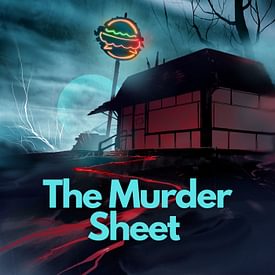Julia Cowley has had the sort of career many of us might dream about. Growing up fascinated with true crime, she eventually joined the the FBI where she was selected to join the Behavior Analysis Unit. While a part of that team, she became the lead FBI profiler on the Golden State Killer case.
Now retired from the Bureau, she hosts the Consult, a terrific true crime podcast where she and other retired FBI profilers share their insights on a variety of cases.
https://truecrimeconsult.com/
Send tips to murdersheet@gmail.com.
The Murder Sheet is a production of Mystery Sheet LLC .
See Privacy Policy at https://art19.com/privacy and California Privacy Notice at https://art19.com/privacy#do-not-sell-my-info.


